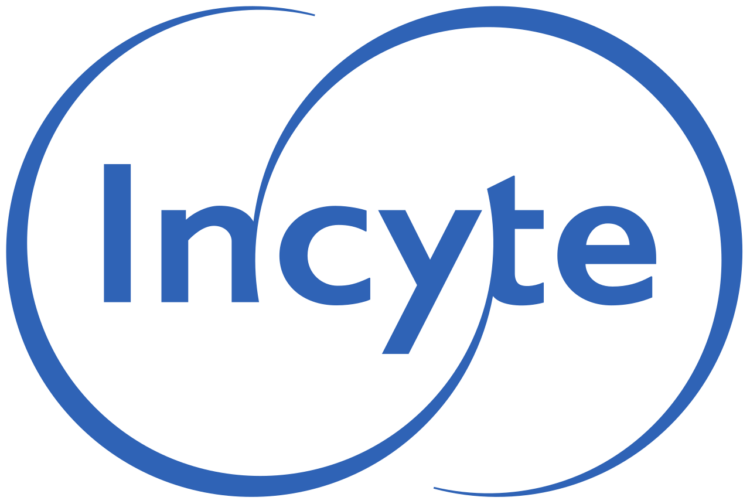What I’ve Learned Since My Diagnosis with a Rare Blood Cancer

Statistics – we use them every day. They are numbers that help us make sense of the world. There are a few statistics that I never thought I’d be a part of.
Did you know that there are approximately 7,000 known rare diseases, and 1 in 10 Americans is living with a rare disease? I didn’t…until I was diagnosed with polycythemia vera (PV), a rare, chronic blood cancer that is part of a group of blood cancers called myeloproliferative neoplasms (MPNs) – officially making me one of the “1 in 10.” My journey to diagnosis, like many in the MPN community, was long and frustrating. Because PV is a rare disease, there’s a lack of awareness and understanding of PV compared to more commmon cancers. This, coupled with the fact that many PV symptoms – such as fatigue, headaches and dizziness – are often overlooked or misdiagnosed, contributed to my delayed diagnosis.
I was officially diagnosed with PV in 2006, but I can remember moments going as far back as 1988 where I suspect I was displaying signs of my disease and just didn’t know it. One memory that particularly stands out occurred during a routine physical. My doctor flagged that my platelets were high but told me “not to worry about it.” If only I knew then what I know now, I wouldn’t have ignored my unexplained symptoms. I was eventually diagnosed with PV through a bone marrow biopsy and, like many people first diagnosed with cancer, I was left in a state of shock. I felt alone, confused and unclear on what to do next or who to turn to for knowledge, guidance and support. That’s why it’s so important to me to share my story. I hope my experiences and insights will inspire and guide others through their own journey. Here are six important tips I’ve picked up along the way:
- Find an expert. When dealing with a rare or lesser-known disease, it is common to meet with doctor after doctor and still leave without a proper diagnosis. Unfortunately, this is what happened to me. Because so many rare diseases, like MPNs, are chronic and progressive in nature, delaying diagnosis means delaying potential treatment and disease management while the effects on your body continue and symptoms potentially worsen. It’s important to seek care from a health care professional who is knowledgeable about your condition. If you are unsure whether you are in the right hands, my advice would be to seek a second (or third) opinion. With MPNs specifically, there are so many intricacies and nuances to the disease that it was imperative for me to find a doctor who understood every aspect of my condition. Finding the right doctor can make a meaningful difference in the management of your disease. This was certainly true for me.
- Track your symptoms. MPNs are progressive – which means they may worsen over time. With chronic and progressive diseases, it’s especially important for you to track your symptoms on a regular basis, as it can help you and your doctor identify subtle changes in your condition. You can track your symptoms by simply jotting down notes in a journal or by using a more formal tool, such as this online MPN symptom tracker, which is something I’ve found helpful. The online tool assists me in keeping a record of my symptoms, blood counts and past procedures – information that is invaluable to reference when visiting with my doctors. The more you understand your condition, the better you and your doctor will be in managing it.
- Be your own health advocate. Chronic diseases like MPNs can affect people differently – what works for one person may not work for another. Therefore, it is extremely important for you to educate yourself about your disease. Before a visit to your doctor, I recommend that you do your own research about specific concerns you might have and have a list of questions prepared to discuss during your appointment. Just be sure you are referencing reliable and evidence-based sources for your information. I have found websites like Voices of MPN, the NCCN Guidelines for Patients®: MPN and the MPN Research Foundation to be valuable resources with information and guidance for navigating my disease.
- Find a simple way to explain your condition to others. Living with a rare disease can feel isolating. When people have never even heard of your disease, it can be hard for them to understand what you’re going through. I still face this challenge today, almost 15 years after my diagnosis. What I’ve learned is that as important as it is to take the time to educate yourself about your disease, it’s also very important to find a simple way to describe your disease to others. The more your friends and family know about your condition, the more they can support you in your journey. I’ve had success using a visual that describes what my blood looks like with PV. I ask people to imagine two beakers filled with liquid, one with dense oil and one with water. Then I ask them to imagine trying to pour the beakers out – what would it look like, and how would the oil and water drip out of the beakers? The beaker that pours out like water more closely resembles the natural flow of blood. The beaker that pours out like oil is more similar to how blood is in someone living with PV. By using this image as a starting point, it is easier for others to understand how the thickening of my blood impacts the systems in my body and causes the symptoms I experience. I find that painting simple pictures for others helps them better grasp the effect my disease has on my body.
- Find a support network. When I was first diagnosed with PV, I felt like I had no one to turn to who could truly understand what I was going through with this rare disease. I felt like I was facing the disease on my own. However, once I finally opened up and shared my experience with my family and friends, I realized how important it is to have others to lean on. One of the most important pieces of advice I can give is to find a support system. Whether it is your family, friends, your doctor or a therapist, it’s critical to have someone by your side every step of the way. After being diagnosed with PV and feeling like I didn’t know where to turn, I wanted to change this for others. So, I started a support group to gather people together in my area who were living with an MPN. It was such a relief for all of us to meet with others who understood firsthand what we were going through. If you don’t have any support groups to join near you, I encourage you to find support online – I’ve discovered that there are many online communities for people living with a rare disease. For example, Voices of MPN has a Facebook page that brings together members of the MPN community from across the country, and the Association of Cancer Online Resources has an online MPN-NET discussion group. You can also find an online list of support groups in the U.S. and around the world maintained by the MPN Research Foundation. These online groups can provide helpful information and educational resources about living with an MPN. Regardless of where you find your community of support – be it online or in person – it’s critical to make sure that you have the right people behind you and resources in front of you to help.
- There will be ups and downs in your journey; stay positive. When you are living with a rare disease, it’s inevitable that your journey will be filled with ups and downs. Some days you may receive good news or feel like the impact of your disease is minimal. Other days your symptoms may feel more severe, causing fear or anxiety about what’s next. I can assure you that it is normal, and OK, to experience this range of emotions. Even on the worst days, don’t let your fear or worry stop you. For me, I try to channel my emotions into actions and find comfort in raising awareness about MPNs and other rare diseases because I feel like I’m helping others. The more people are aware of what we’re going through, the more they can help. By sharing your story, you are helping the rare disease community feel heard, find its voice and deepen the understanding of conditions like my rare blood cancer. Each person has the power to impact, inform and inspire others, and I encourage you to accept that challenge.
© 2019, Incyte Corporation. All trademarks are the property of their respective owners. MAT-HEM-00600 02/19

